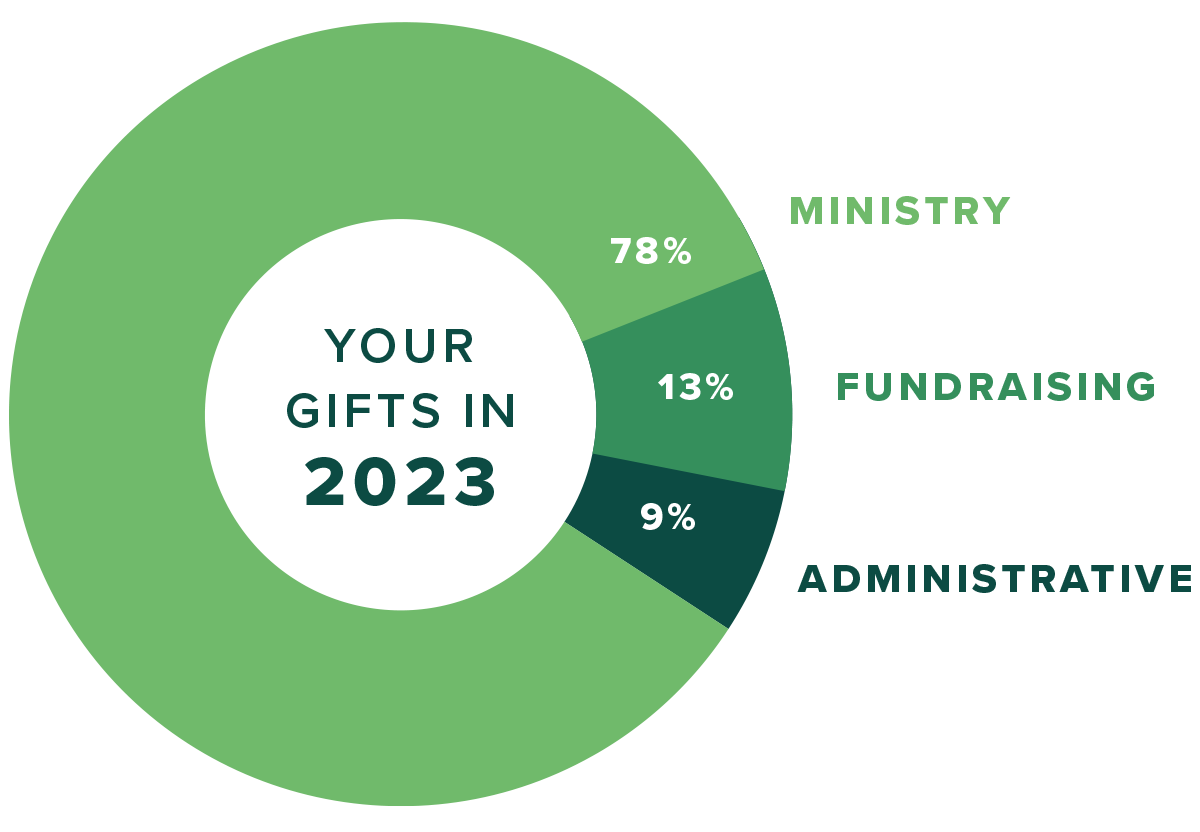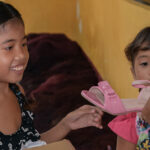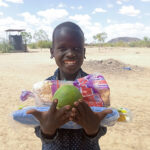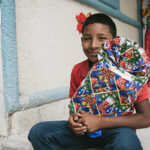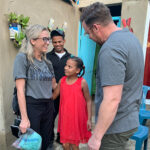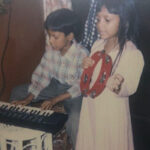Miriam Awar keeps a tidy stick hut in Lotubae, Turkana, where she lives with her husband and cares for her grandchildren, including 10-year-old Apua.
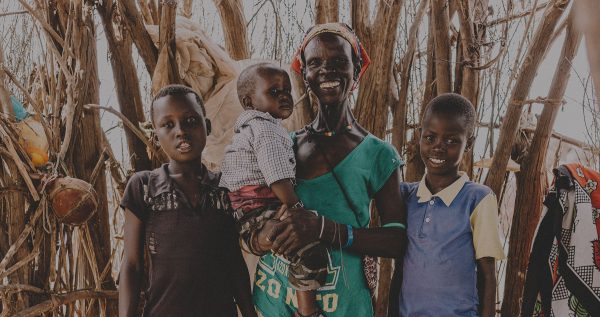
Miriam with her children. Photo by Cory Crawford
Miriam Awar keeps a tidy stick hut in Lotubae, Turkana, where she lives with her husband and cares for her grandchildren, including 10-year-old Apua. Miriam and her husband farm peas, sorghum, and millet to provide for their family living in poverty.
Miriam is also a treasurer for Lotubae Hope Center, where sponsored children come to eat, play, receive medical care, dream of a better future, and learn about Jesus.
Miriam’s work at the nonprofit Hope Center changed the course of Apua’s life.
Apua came to Miriam’s home to escape a tough family situation, but she couldn’t escape her parents’ difficult demands. Apua’s parents insisted that she become a Raia, and that she stay out of school to prepare for marriage.
While Apua’s friends played with one another and dreamed about what they wanted to be when they grew up, Apua gathered firewood, cooked, cleaned, and looked after babies. The beaded necklace she wore signaled to everyone that her parents required a dowry for her marriage.
Meanwhile, Miriam continued to serve as treasurer at her Hope Center where she attended a weeklong training. Nicholas Nzivo, OneChild Country Director in Kenya, was leading the training and noticed that Apua was wearing beads and not in school. He carefully considered discussing the issue with the group.
“Challenging a cultural practice is naturally an uphill task if not a risk to social relations and threat to any external interventions to help,” he says. “As such, my advances and approaches have to be carefully made.”
Nicholas questioned Miriam about Apua, wondering how Miriam could advocate for other kids while her own girl was not getting the same child development opportunities, and he encouraged her to allow Apua to go to school. Miriam says she wanted Apua to go to school, and Nicholas’ prompting gave her the courage to stand up for what she knew was right. She asked Apua’s father to allow her to go back to school, and after a week of discussions, her father relented.
“For me, saving one Raia was like pulling that child from the mouth of prey given the cultural importance attached to the practice,” Nicholas says.
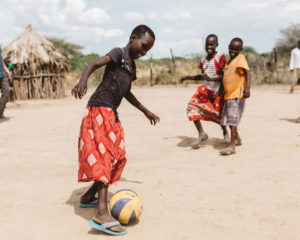
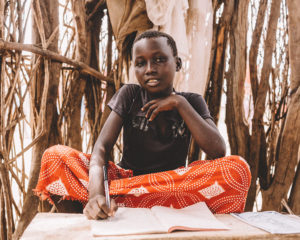
Nicholas encouraged the training group to raise money to support Apua’s schooling. They immediately rallied together to raise $60 (KES$6,000), which allowed Miriam to buy uniforms, books, shoes, pens and other items for her schooling.
Apua loves going to school and is happy to be able to play soccer with her friends. Her favorite school subject is science. She says with resolve, “I want to be a nurse when I grow up.” With advocates like Nicholas, she will have a chance.
“We may not have saved all the Raia, but the seed has been planted, and all key stakeholders took part in it when they willingly gave of their finances to help place Apua in school,” Nicholas says. “I am very optimistic and have faith that this girl will excel to become a light and a reference point to inspire others and the whole community at large.”
We are accountable to the children we serve AND to our donors.
Our accountability to our donors is one of our highest priorities. Our goal is to use the funds entrusted to us as wise stewards. To do this requires continued monitoring of our fund distribution. OneChild is also a member in good standing with the Evangelical Council for Financial Accountability (ECFA)
